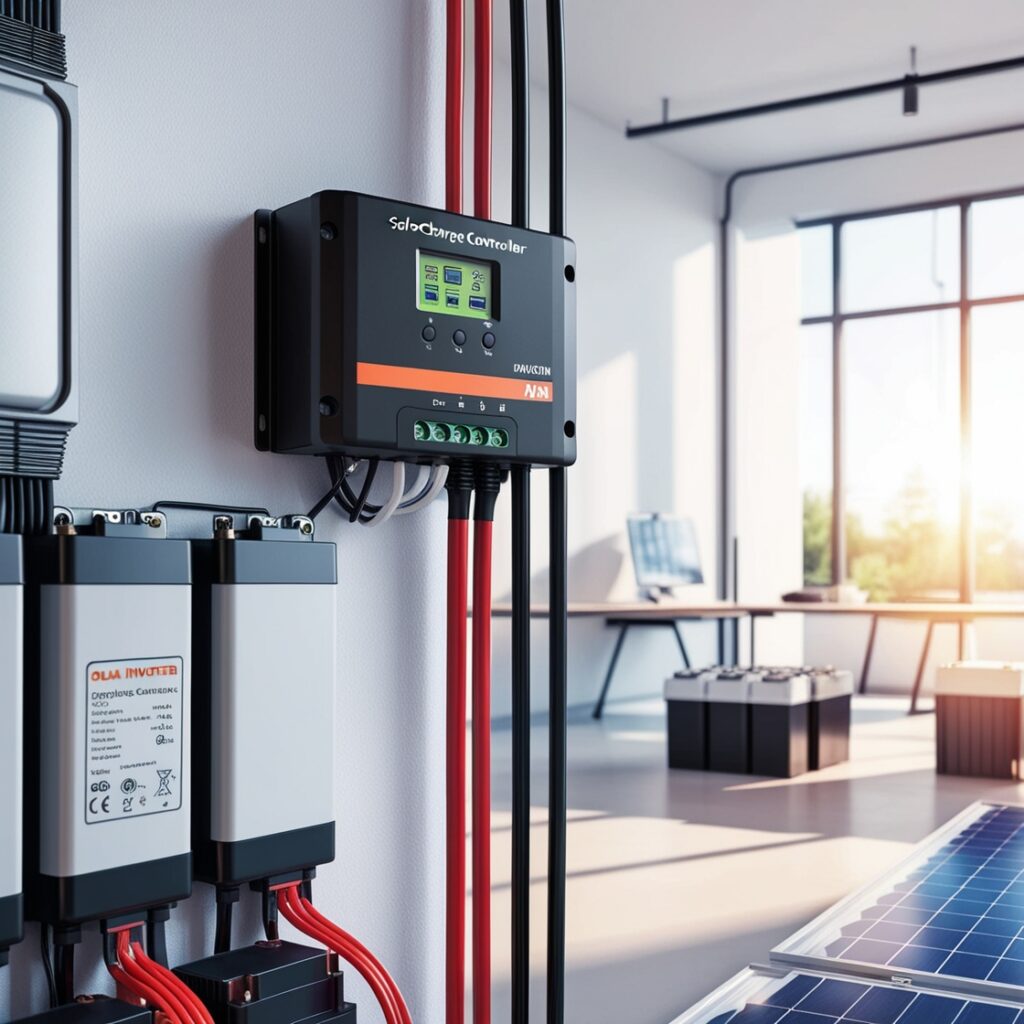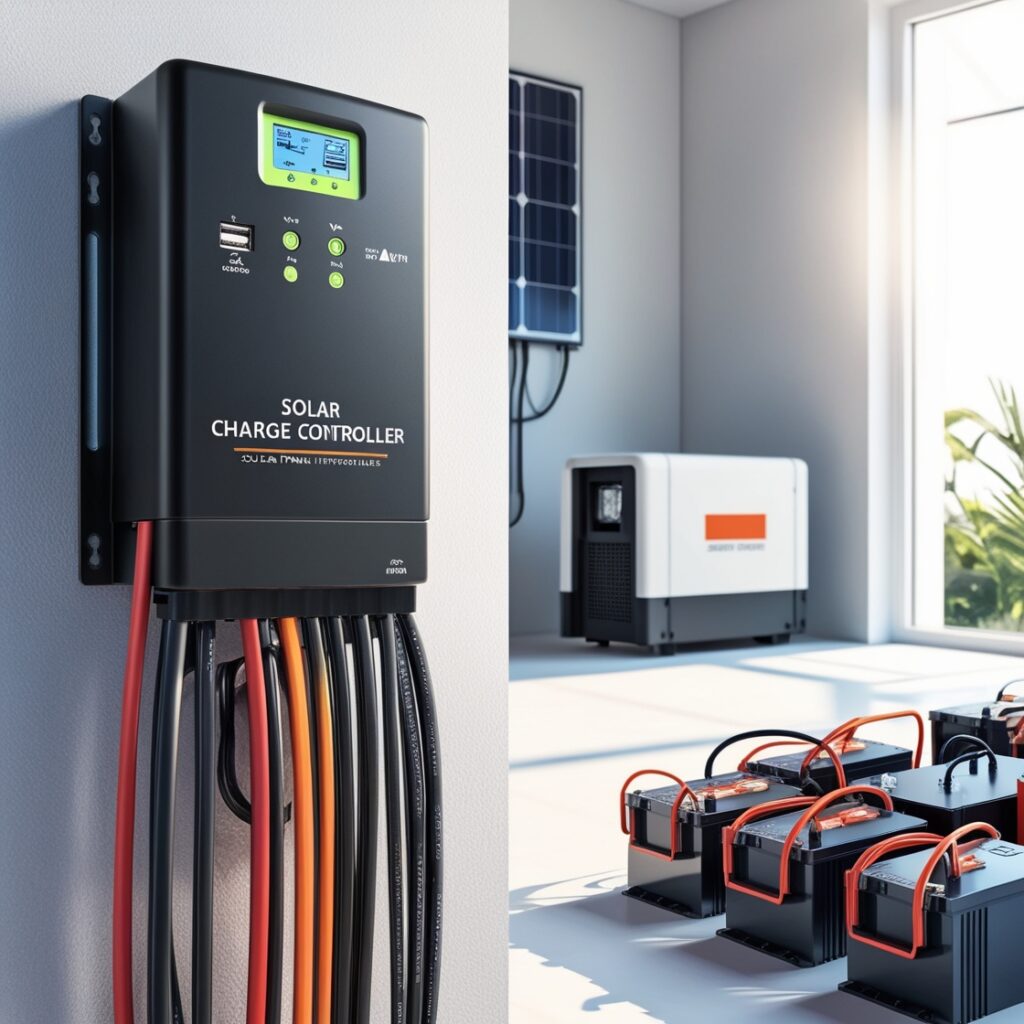Introduction
Managing your solar energy efficiently is crucial for optimizing performance and protecting your investment. Solar charge controllers play a vital role in regulating the power coming from your solar panels to your batteries, preventing issues like overcharging and undercharging. With so many options available, choosing the right controller can feel overwhelming.
This article will help you navigate the top five solar charge controllers for 2024, highlighting their features, benefits, and how they suit various solar energy systems.
What is a Solar Charge Controller and Why Do You Need One?
A solar charge controller regulates the voltage and current coming from your solar panels to your battery bank. It ensures safe and efficient charging while protecting your batteries from overcharging, reverse current flow, and voltage spikes. The two main types of controllers are:
- Pulse Width Modulation (PWM): A simpler, cost-effective option for small systems.
- Maximum Power Point Tracking (MPPT): More advanced, offering superior efficiency for larger systems by optimizing power extraction from solar panels.
Investing in the right controller can prolong the lifespan of your batteries and improve your solar setup’s overall performance.

Top 5 Solar Charge Controllers in 2024
1. Victron SmartSolar MPPT 100/50
The Victron SmartSolar MPPT is a favorite among solar enthusiasts for its reliability and advanced features.
- Key Features:
- Bluetooth connectivity for monitoring and customization via a smartphone app.
- Ultra-fast MPPT technology for optimal power harvesting.
- Handles up to 100V and 50A, ideal for medium to large systems.
- Why Choose It?
Perfect for homeowners seeking an efficient and user-friendly controller with robust performance monitoring capabilities.
2. Renogy Rover 40A MPPT Charge Controller
Renogy is a trusted name in the solar industry, and the Rover 40A MPPT continues to impress with its affordability and functionality.
- Key Features:
- LCD display for real-time data and system settings.
- Overcharging and short-circuit protection.
- Compatible with various battery types, including lithium.
- Why Choose It?
A cost-effective solution for small to medium solar setups, offering dependable performance.
3. EPEVER Tracer 4210AN MPPT Charge Controller
EPEVER’s Tracer series offers excellent value for money with features that rival premium models.
- Key Features:
- Advanced MPPT technology with 99.5% tracking efficiency.
- Remote monitoring via an optional Wi-Fi module.
- Handles up to 100V and 40A.
- Why Choose It?
Ideal for users who need high efficiency at an affordable price.
4. OutBack FlexMax FM80 MPPT Charge Controller
The OutBack FlexMax FM80 is built for heavy-duty applications, making it a top choice for off-grid systems.
- Key Features:
- Maximum input voltage of 150V, suitable for large solar arrays.
- Continuous monitoring and optimization for changing weather conditions.
- Programmable settings for system customization.
- Why Choose It?
Perfect for off-grid enthusiasts and those with larger solar installations needing unmatched reliability.
5. Morningstar ProStar MPPT Charge Controller
Morningstar’s ProStar MPPT combines efficiency with durability, making it a popular choice for diverse applications.
- Key Features:
- Advanced self-diagnostics for improved reliability.
- Built-in lighting and load control.
- Industrial-grade design for rugged conditions.
- Why Choose It?
A versatile controller designed for long-term durability in demanding environments.

Key Factors to Consider When Choosing a Solar Charge Controller
- System Voltage Compatibility: Ensure the controller matches your system’s voltage (12V, 24V, 48V).
- Power Handling Capacity: Check that the amperage and voltage ratings align with your solar array and battery bank.
- Type of Controller: Choose MPPT for efficiency in larger systems or PWM for smaller, budget-friendly setups.
- Monitoring and Connectivity: Look for controllers with mobile apps or LCD displays for easy monitoring.
- Durability and Warranty: Opt for products with robust construction and strong manufacturer support.
How to Maximize the Efficiency of Your Solar Charge Controller
- Optimize Solar Panel Placement: Position panels to maximize sunlight exposure.
- Regular Maintenance: Clean and inspect your panels and batteries for optimal performance.
- Utilize Monitoring Systems: Use controllers with real-time tracking to adjust and improve energy use.
- Upgrade When Necessary: As your energy needs grow, consider upgrading to a higher-capacity controller.
FAQs About Solar Charge Controllers
1. What happens if I don’t use a charge controller?
Without a controller, your batteries risk overcharging, overheating, and potential damage, leading to reduced efficiency and lifespan.
2. Can I use an MPPT controller with any solar panel?
Yes, MPPT controllers work with all solar panels but are especially effective with higher voltage arrays.
3. How do I know if my charge controller is working?
Most controllers have indicators or apps showing system status. Regular monitoring can ensure your setup is functioning optimally.
Conclusion
A solar charge controller is an essential component for ensuring the efficiency and longevity of your solar power system. Whether you’re powering a small cabin or an extensive off-grid home, the right controller makes all the difference.
Explore the options highlighted in this article to find the best match for your needs. From the high-tech Victron SmartSolar MPPT to the rugged OutBack FlexMax, there’s a controller for every type of solar setup.
Take the next step in optimizing your solar power system today!









